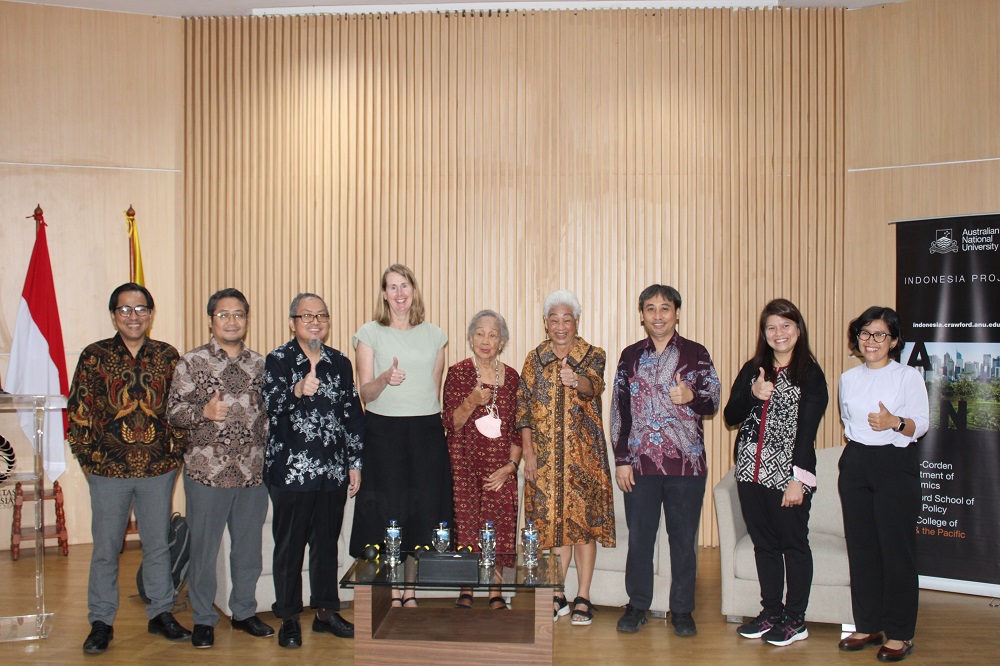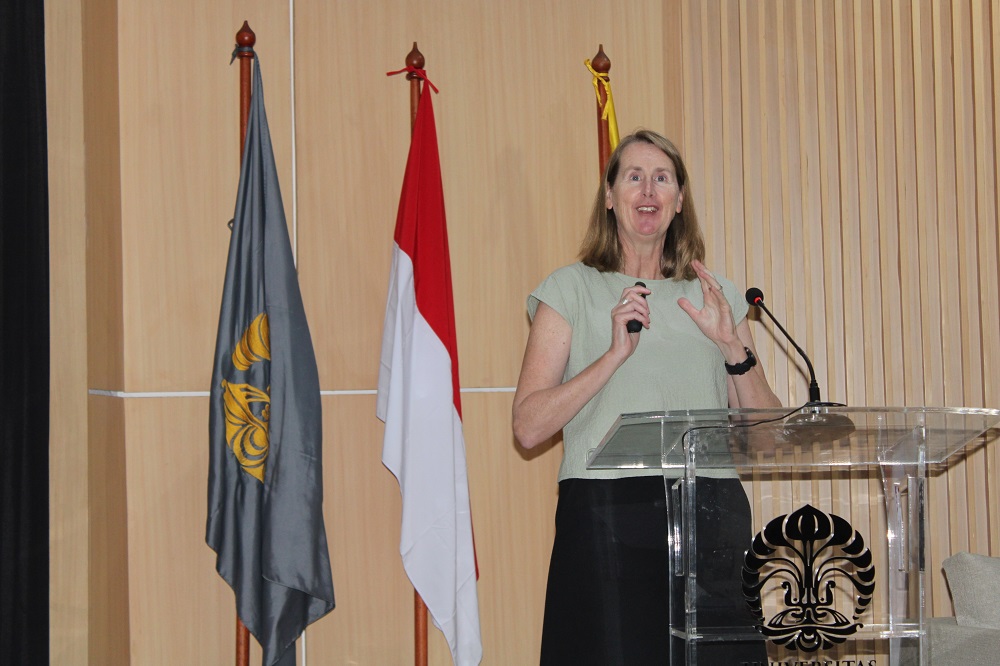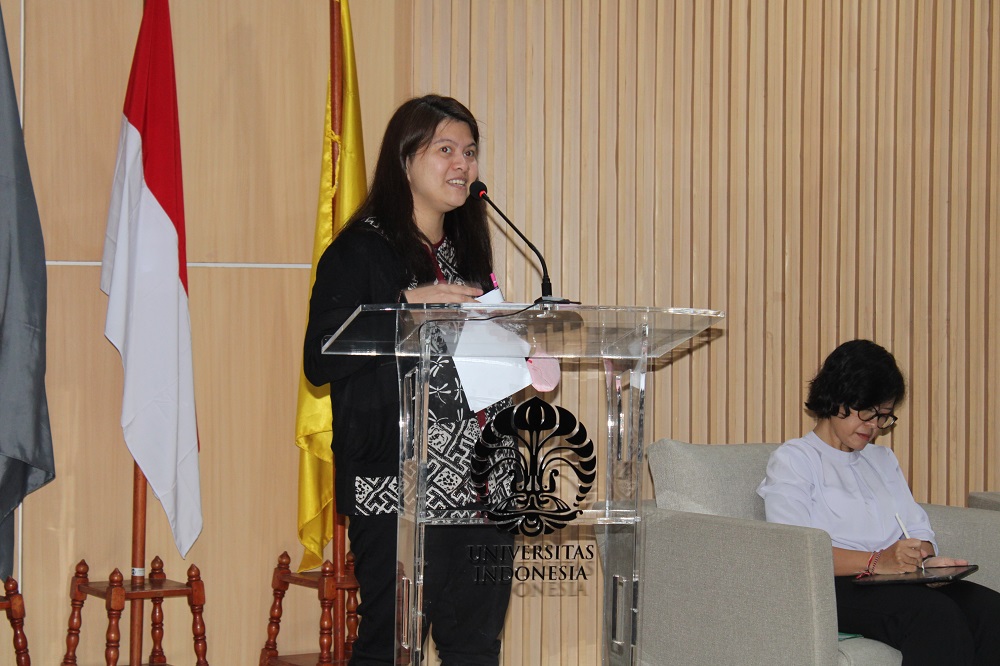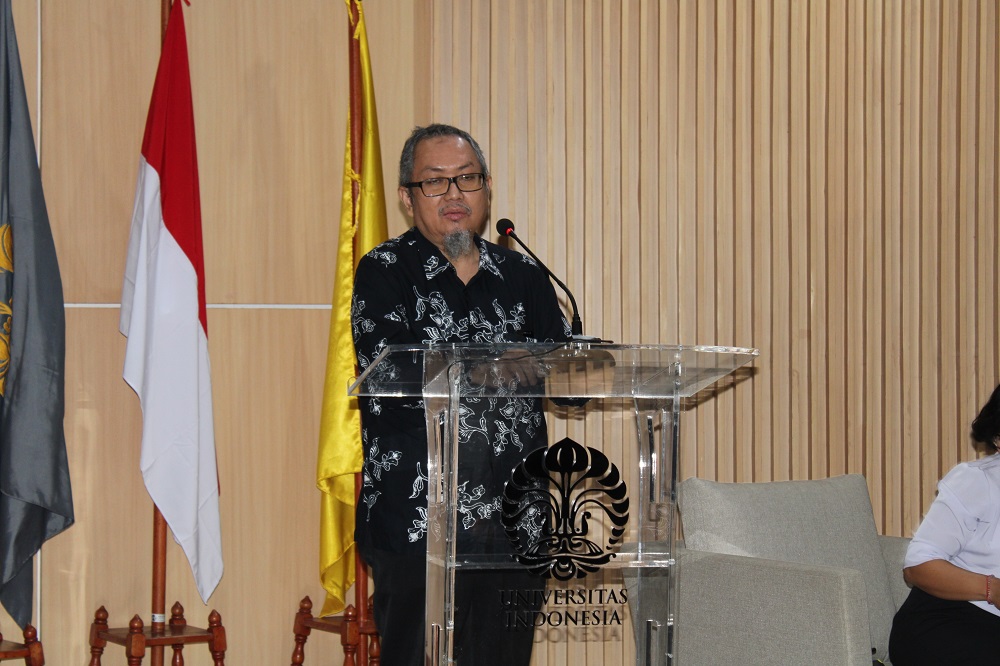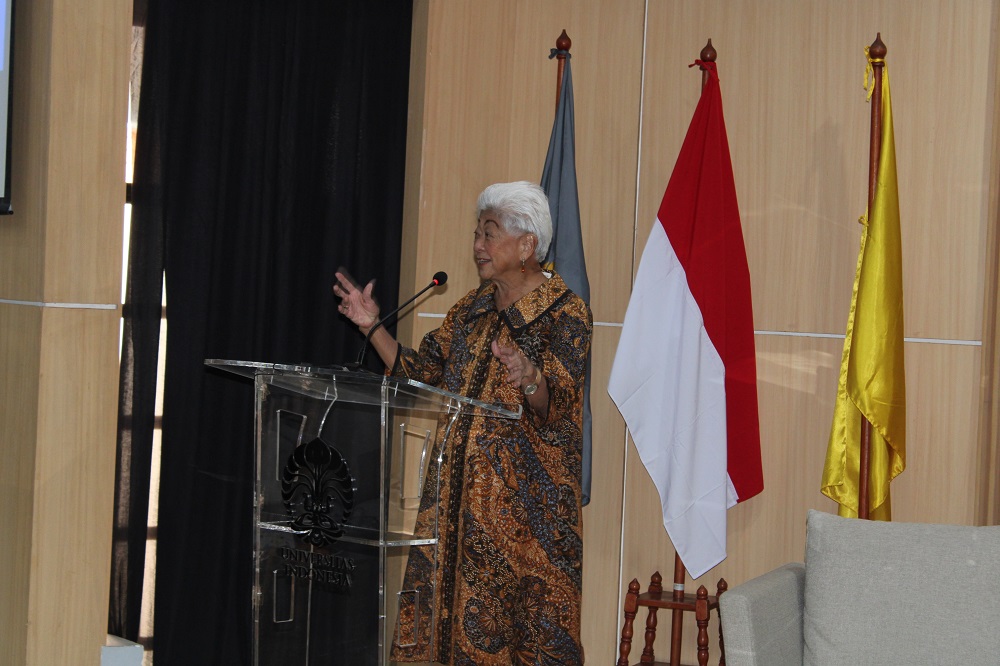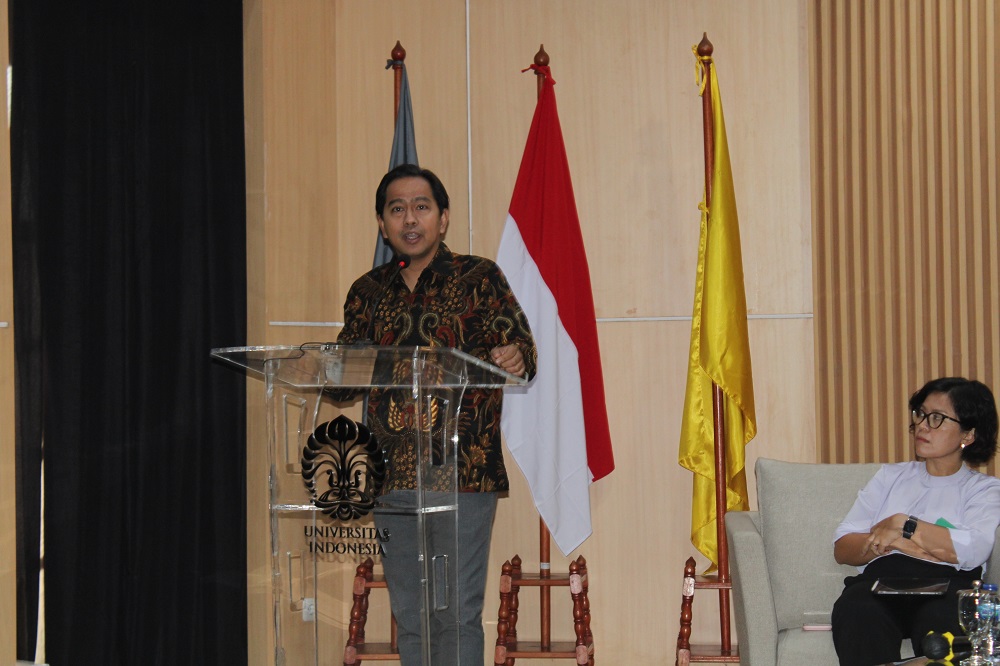Update July 2023: the author version of the paper delivered by Professor Lisa Cameron is currently available open access (free to download) from the Bulletin of Indonesian Economic Studies.
The annual Sadli Lecture is a collaboration between the Institute for Economic and Social Research (Universitas Indonesia) and the Indonesia Project (The Australian National University). Named in honour of the late Professor Mohammad Sadli, a leading Indonesian policy-maker and economist, the series aims to broaden understanding of, and stimulate debate on, key economic policy challenges faced by Indonesia. Since 2007, the annual Lecture is based on a commissioned paper on Indonesia in comparative economic perspective for the Bulletin of Indonesian Economic Studies.
Beginning in 2023, the Sadli Lecture will also honour Professor (Emeritus) Saparinah Sadli, in addition to her late husband Professor Mohammad Sadli. The scope of the series will expand to cover gender equality and social inclusion in addition to international trade, industrial organisation, development economics and macroeconomics, which were the focus areas of Mohammad Sadli. It is an honour that Professor Saparinah was able to attend this Lecture in her honour.
The Lecture was opened by Dr Teguh Dartanto, Dean of Faculty of Economics and Business, Universitas Indonesia (FEB UI). In his remarks, Dr Dartanto reiterated the importance to have broader perspective and historical perspective from other countries as a feedback for policymakers in Indonesia, which is the aim of the Sadli Lecture series.
In her keynote remarks, Professor (Emeritus) Mayling Oey-Gardiner highlighted the significant contributions of Professor Saparinah Sadli in the field of gender equality and social inclusion. This recognition emphasizes the importance of Professor Sadli’s work and underscores the relevance and necessity of gender and women studies in today’s society.
Indonesia, as a country, is often considered to be in the middle of the field in terms of the Gender Equality Index (GEI). While the country has made advancements in gender equality, there are other nations that have achieved greater progress. However, it is worth noting that Indonesia, as a predominantly Muslim-majority nation, outperforms many other countries with similar religious demographics in terms of gender equality.
In her Lecture entitled Gender equality and development: Indonesia in a global context, Professor Lisa Cameron draw on research that she has conducted in Indonesia and other countries since the 1990s. She reiterated the fact that Female Labour Force Participation (FLFP) rate in Indonesia has remained largely unchanged at just above 50% for over two decades. This indicates that progress in increasing women’s participation in the workforce has been slow. Marital status and the presence of young children significantly affect women’s LFP in Indonesia, many women face societal pressure and expectations to prioritize their roles as wives and mothers over pursuing careers. The burden of household responsibilities and childcare duties, especially for children aged between 0 and 2 years, often falls disproportionately on women. Professor Cameron argued that increasing FLFP is key to greater gender equality in Indonesia, as it also tends to reduce family violence and lead to happier home.
Can social norms that have kept women in the domestic, private sphere be changed? Professor Cameron’s proposed that light touch, low cost and easy scalable interventions that demonstrate community support for women working, can actually change attitudes towards women working. Attitudes became 25% more supportive of women working after being provided with information of the women’s support among the population. Providing additional information on support for childcare also strengthens the effectiveness of the messages. Additionally, her research suggests that interventions that target men’s attitudes and behaviors could have a substantial impact on increasing women’s labor force participation in Indonesia. By addressing the barriers created by husbands’ disapproval, it is estimated that the country’s female labor force participation (FLFP) could potentially increase by as much as 6 percentage points, representing a growth of more than 10%.
In her discussion, Dr Putu Geniki Lavinia Natih (FEB UI) highlighted that COVID- 19 exacerbated hours spent by women in family caregiving roles, underlining the need to recognize caregiving in the household as a legitimate form of work. Dr Natih suggested that the problem is not necessarily the choice women make to transition from employment to caregiving, but rather the circumstances under which they make this decision where despite an increase in women participating in paid work, their share of family responsibilities remains largely unchanged. This means that women continue to shoulder the bulk of caregiving and household duties, even as they pursue careers outside the home. Focusing solely on increasing female labor force participation is not enough. She emphasized the need to recognize caregiving in the household as a legitimate form of work. By acknowledging caregiving as legitimate work, its importance and contribution to society can be acknowledged and properly valued.
In his discussion, Dr Asep Suryahadi (The SMERU Research Institute) reiterated that low level of female labor force participation is not unique to Indonesia. Indonesia’s FLFP rate is only slightly less than the United States, and is actually higher than the Philippines. It seems that the problem is global in nature. It should be noted that some provinces in Indonesia such as Bali, Yogyakarta, and NTT have a relatively high FLFP. Dr Suryahadi emphasized the need for further research to investigate the specific social norms and their impact on women’s limited economic participation.
The 17th Sadli Lecture was held on Tuesday, 16 May 2023 at the R. Soeria Atmadja Auditorium, Faculty of Economics and Business Universitas Indonesia in Depok. Around 160 people attended the event in person, and around 400 people participated online on Zoom and YouTube. About 60% of attendees were lecturers and students at Universitas Indonesia and the rest were researchers, government officials and lecturers/students from other universities.
